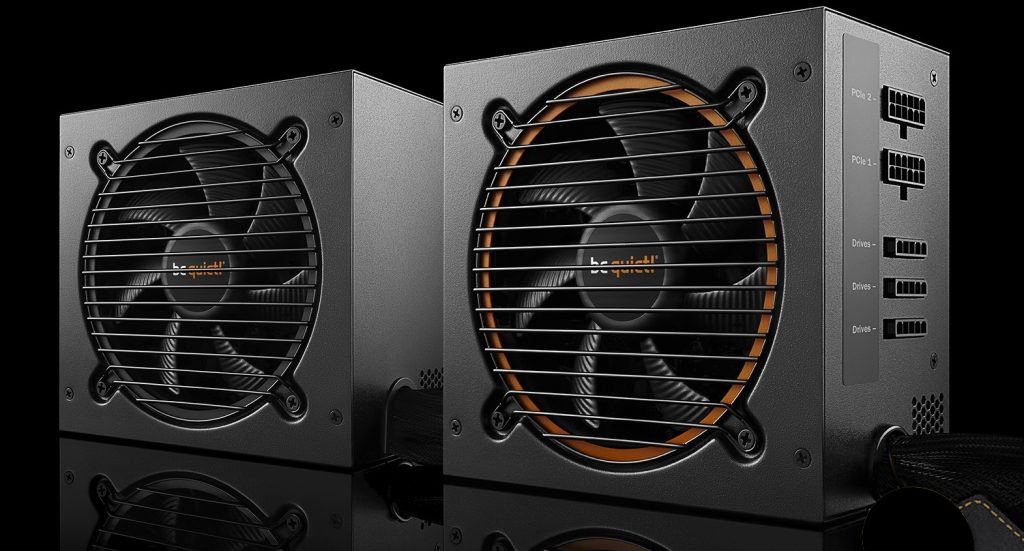Selecting a power supply unit (PSU) for your computer is an important stage of PC assembly that affects the stability of the entire system and its future upgradability. The PSU not only provides power to each component, but also protects them from possible power surges. Therefore, the choice of a power supply unit should be made carefully.
Determining the required capacity
The key to determining power is to accurately estimate the power consumption of each system component. The processor and graphics card are the main power consumers in most PCs, but other elements such as:
- Hard drives and SSDs: Although their consumption is relatively small, it should still be included in the overall calculation.
- RAM: Additional RAM modules increase the total consumption.
- Cooling systems and optional equipment: Fans, water cooling pumps and other components also consume power.
- Motherboard: Although its consumption is usually lower than that of the CPU or graphics card, it also contributes to the overall load.
Using power calculators
Online power calculators provide a convenient tool to estimate the total power consumption of your system. By entering the specifications of your equipment, you will get an approximate value of the required PSU power. It is important to use multiple calculators to compare results, as different tools may use different estimation algorithms.
Adding power reserve
Adding 20-30% to the calculated power is not just a precautionary measure, but a practical approach that allows:
- Ensure stability during peak loads, as some components may consume more power during intensive operating modes.
- Plan for future upgrades without having to replace the power supply.
- Reduce noise and heat dissipation as the PSU with power to spare works further from its limits, allowing the fan to spin slower.
Selection of performance certification
The next criterion is efficiency certification. Power supplies with high efficiency convert more electricity into usable power and generate less heat. This not only saves energy, but also contributes to quieter operation due to less strain on the cooling system.
Understanding 80 Plus Certification
80 Plus certifications vary in efficiency levels, from basic 80 Plus to 80 Plus Titanium. The higher the level, the higher the efficiency of the power supply and therefore the higher the price.
Certification starts at the 80 Plus baseline level, which provides at least 80% efficiency at 20%, 50% and 100% load. This means that at least 80% of the power supplied to the PSU is converted into usable power for PC components, while the remaining 20% can be lost as heat.
As the level of certification increases, so does the requirement for efficiency:
- 80 Plus Bronze: provides 82% efficiency at 20% and 100% load and 85% efficiency at 50% load.
- 80 Plus Silver: raises the bar to 85% efficiency at 20% and 100% load and 88% at 50% load.
- 80 Plus Gold: offers even greater efficiency – 87% at 20% and 100% load and 90% at 50% load.
- 80 Plus Platinum and Titanium: these levels are designed for the most demanding users and professional equipment, providing efficiencies above 90%.
Selection of manufacturer and model
Build quality and reliability is something you should pay special attention to. When choosing between manufacturers, favour well-known brands with a good reputation and positive user reviews. Such brands as:
- Corsair
- Seasonic
- EVGA
- Be Quiet!
- Thermaltake
- Cooler Master
- NZXT
- Antec
- SilverStone
- FSP
These brands have established themselves in the market due to their high quality products and reliability. Do not skimp on the power supply by choosing dubious brands. Saving money may result in overheating, component failure, or even fire.
Functional features
- Modularity: Modular PSUs allow you to connect only the cables you need, making it easier to assemble your system and improving ventilation inside the case. If you value order and appearance of your PC, choose a modular or semi-modular PSU.
- Noise level: Power supplies with quiet fans and intelligent speed control ensure minimal noise even at maximum loads.
- Over-voltage protection: The availability of protection systems such as OVP (over-voltage protection), UVP (undervoltage protection), SCP (short-circuit protection), and others increases safety of use and extends component life.
Recommendations for selection
How to choose a power supply for your computer is not only a question of power and manufacturer, but also of understanding the needs of your system and future upgrades. The right PSU ensures not only the efficient and stable operation of all components, but also their safety. Here are some tips to help you make an informed choice:
- Do not neglect the quality of the PSU. Choose reliable brands that offer quality products with good warranty terms.
- Consider future needs. If you plan on upgrading your system, such as adding a second graphics card, make sure the PSU you choose can provide the additional power you need.
- Check reviews and tests. Before buying, read user reviews and professional reviews of the chosen PSU model to make sure it is reliable and meets your requirements.
Choosing the right power supply is the key to the longevity and stability of your PC. Do not take this issue lightly. By investing in a quality and suitably powerful PSU, you will ensure reliable and efficient operation of your PC for many years to come. As in any business, approach the choice consciously, taking into account all the factors and features of your system. Don’t forget that investing in quality today means saving money in the future.
When choosing equipment for your PC, remember that saving money on a power supply unit may result in additional costs in the future. Pay attention to details and your choice will be worth it.
Take your next step in the world of PC power supplies with reBITme and enjoy the benefits. Enjoy your purchases!





